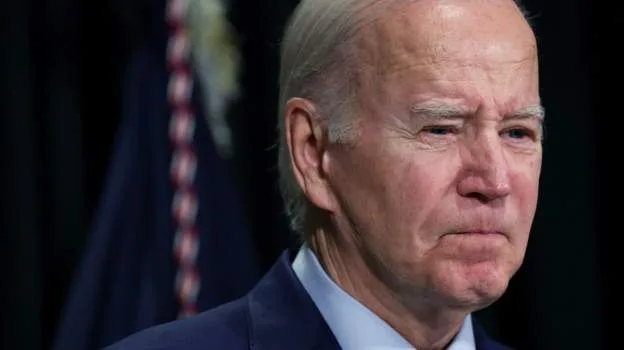President Joe Biden has criticized a recent Supreme Court ruling that granted former President Donald Trump partial immunity from criminal prosecution, calling it a “dangerous precedent.”
Biden argued that the decision undermines the “rule of law” and does a disservice to Americans.
Trump, on the other hand, celebrated the court’s ruling as a significant victory for democracy. The justices determined that while a president is immune for “official acts,” they are not immune for “unofficial acts,” sending the case back to a trial judge.
This ruling is expected to further delay Trump’s criminal case related to allegations of attempting to undermine the 2020 election results, which handed victory to Biden.
The trial judge now needs to identify which actions Trump took in his capacity as president, a process that could span several months. It is unlikely that any trial will commence before the presidential election in November.
In a televised statement late on Monday, President Biden said: “This nation was founded on the principle that there are no kings in America. Each of us is equal before the law. No one, no one is above the law. Not even the president of the United States.
“Today’s [court] decision almost certainly means that there are virtually no limits on what a president may do.
“The man who sent that mob to the US Capitol is facing potential criminal conviction for what happened that day.
The American people deserve to have an answer in the courts before the upcoming election.”
Mr Biden was referring to Trump being on trial for his alleged role in stirring up the riot.
“Now, because of today’s [court] decision, that is highly, highly unlikely,” Mr Biden said.
Following the Supreme Court’s decision, a trial judge now faces the task of distinguishing between actions taken by Donald Trump in his capacity as president and those undertaken in a private capacity.
This determination process is expected to be lengthy and may delay any potential trial until after the November 5 election. Trump hailed the ruling as a significant victory, describing it as a “big win” on his social media platform, Truth Social.
The Supreme Court’s ruling grants partial immunity to all former presidents from criminal prosecution, specifying that acts performed as part of official presidential duties enjoy total immunity. However, acts considered “unofficial,” conducted in a private capacity, are not covered by this immunity.
The lower court judge tasked with Trump’s case will now need to assess which specific behaviors of the former president are pertinent to the criminal prosecution.
This case involves allegations that Trump attempted to overturn the 2020 election result by pressuring officials at the Department of Justice (DoJ) to initiate investigations into voter fraud, despite lacking substantiated evidence.
The three liberal justices on the Supreme Court strongly dissented from Monday’s decision. Justice Sonia Sotomayor said: “The president is now a king above the law.”
Democratic Congresswomen Judy Chu said the fallout from the court’s decision would be far-reaching.
“If a president says in any official capacity that they want to do something that we would consider to be improper and criminal, he could be immune from the actions that he takes,” she said.
he recent six-three Supreme Court ruling is expected to significantly postpone any potential trial involving Donald Trump until well after the November election, if it proceeds at all.
This ruling also affects other ongoing criminal cases against Trump, including those concerning classified documents found at his Florida residence and allegations in Georgia related to efforts to overturn his narrow election loss in the state.
According to CBS, Trump’s legal team is pursuing efforts to overturn his May conviction in New York, where he faces charges of falsifying business records linked to an alleged encounter with adult-film star Stormy Daniels.
The team has reportedly referenced the Supreme Court’s decision in a letter to the judge handling the case, although the contents of the letter have not been publicly disclosed.
The New York Times initially reported on these developments, noting that Trump currently faces four separate legal challenges.

